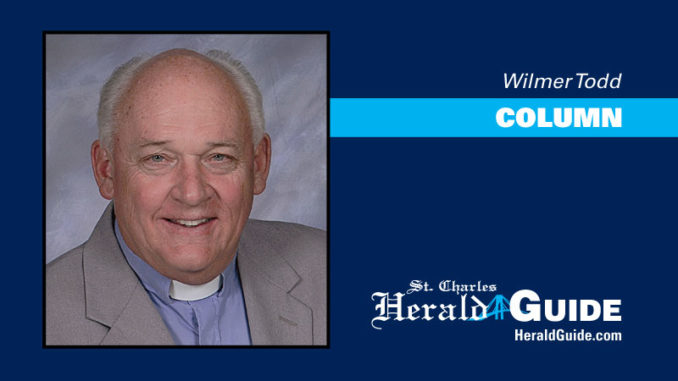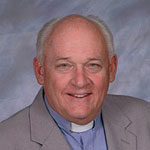
St. Isidore (c. 560-636), the Archbishop of Seville in Spain, once said, “Prayer purifies us, reading instructs us. Both are good when both are possible. If we want to be always in God’s company, we must pray regularly and read regularly. When we pray, we talk to God; when we read, God talks to us. All spiritual growth comes from reading and reflection.”
In his 2010 encyclical, “The Word of the Lord,” Pope Benedict XVI advocated this specific approach to Scripture as a key to our personal holiness. He recommended what St. Isidore advocated for spiritual growth: “Divine Reading,” in Latin “Lectio Divina.” This prayer method has been part of the Benediction tradition for centuries. There are five basic steps, in which we answer four questions, and then resolve to act upon those answers.
Step 1: The Reading. Start with a reading from Scripture and become familiar with the text. Have a desire to understand its true content. What does the biblical text say? Read it several time and pay attention to what words or phrases touch your heart.
Step 2: The Meditation. What does the biblical text say to us? Here, each person, individually but also as a member of the community, must let himself or herself be moved and challenged. The word of God is not an ancient text to be read simply for its historical importance. It is a living and active way that our God reveals himself to us and guides us. He is still speaking to you and to me today. Are we taking the trouble to listen to what he has to say?
Step 3: Pray. What do we say to the Lord in response to his word? Talk to God; talk with God about everything. Prayer, as petition, intercession, thanksgiving and praise, is the primary way by which the word transforms us. The word of God requires a response that begins with prayer. St. Augustine echoes St. Isidore’s idea of prayer, “Your prayer is the word you speak to God. When you read the Bible, God speaks to you; when you pray, you speak to God.”
Step 4: Contemplation. Our prayer concludes with contemplation in which we sit still and ask God to show us his own way of seeing and judging reality. We ask ourselves what conversion of mind, heart and life is the Lord asking of us? We sit in silence and allow God to show us his will.
St. Paul tells us: “Do not be conformed to this world, but be transformed by the renewal of your mind, that you may prove what is the will of God, what is good and acceptable and perfect” (Rom. 12:2). Contemplation aims at creating within us a truly wise and discerning vision of reality, as God sees it, and at forming within us “the mind of Christ” (1 Cor. 2:16). The word of God is “living and active, sharper than any two-edged sword, piercing to the division of soul and spirit, of joints and marrow, and discerning the thoughts and intentions of the heart” (Heb. 4:12).
Step 5: Action. We should remember that the process of Divine Reading should move us into action. Knowing God’s will, we should become a light to our world on how to love others. Once we know what God is calling us to do, the next step is simple: do it.
Conclusion. If all Christians would undertake the prayerful reading of Scripture, our wounds of the separation would begin to heal. For the Christian, a faith-filled understanding of Sacred Scripture will always lead us to worship where we celebrate the word of God as a timely and living word.
In our worship, God speaks to us and directs our everyday lives. God’s people listen attentively and respond. Our worship of God is by its very nature steeped in Sacred Scripture.


Be the first to comment